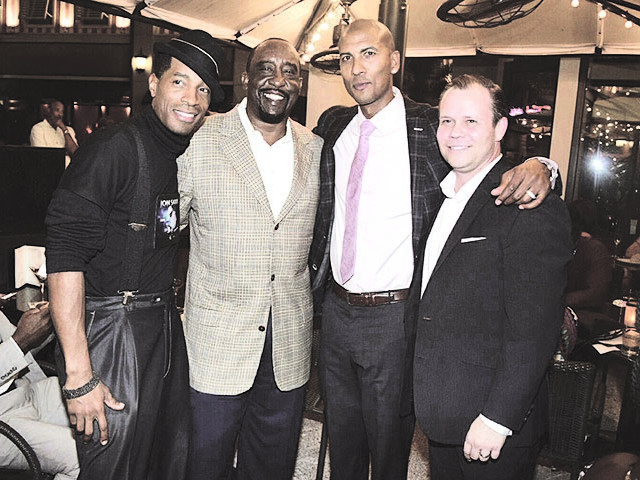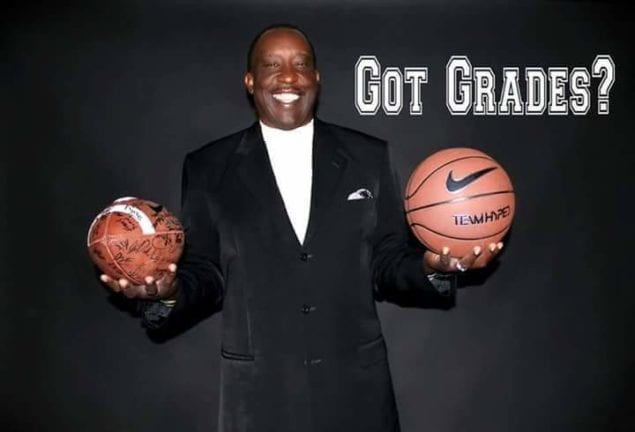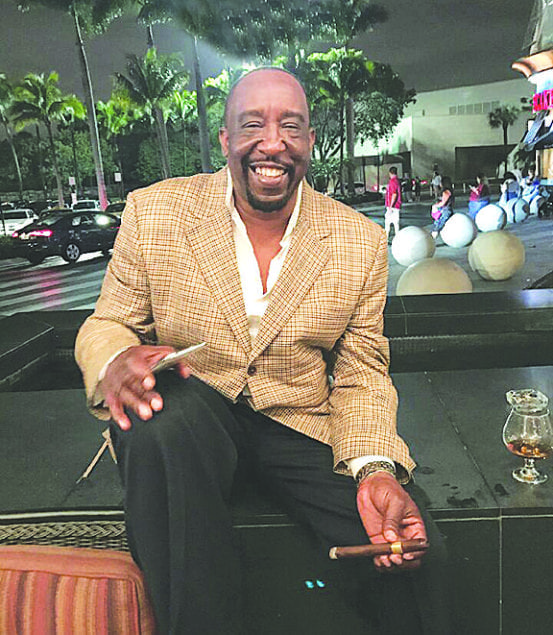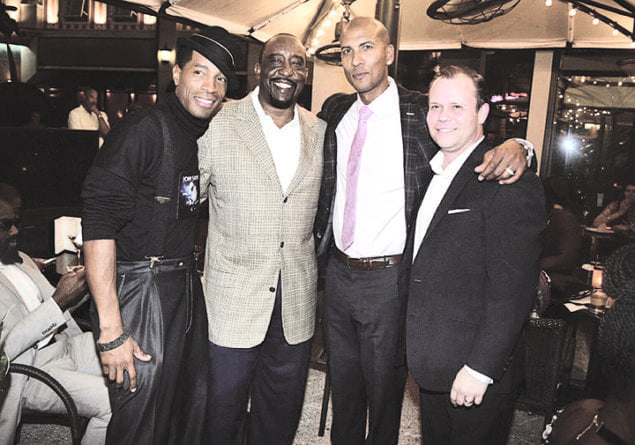The more you learn about Wesley Frater’s Tournament of Champions (TOC), the renowned nonprofit that revolutionized youth sports in South Florida, the less it seems to be about sports at all.
Rather, it’s about life.
A high school and collegiate athlete born in Jamaica and raised in Miami, Frater left Florida Memorial University in the late 1980s to work as director of European employment for Saperstein Sports Management, owned by Eloise Saperstein, daughter of Harlem Globetrotters founder Abe Saperstein.
For six years, while finding work for NBA and college players in Europe and Latin America, he witnessed the hardships they suffered from years of poor decisions. After fans and money were no longer in high supply, many once wealthy players had little left.
The revelation shocked and inspired him.
“I wondered if kids really understood the intricacies of sports off the field,” he said. “I decided that I would go back and share this information with South Florida. Problem was, I wasn’t a big-name athlete. How was I going to hold the attention of kids and their coaches?”
Then it came to him: He’d organize a sporting event to gain attention, but require that players attend a symposium beforehand featuring positive peer leadership training in conduct, communication and networking so that they’d learn how to take advantage of opportunities in college while avoiding the pitfalls he’d seen while on the road.
“I’m not trying to say, ‘Stay in school and get good grades’,” he said. “I want athletes to say, ‘I’m not waiting for the coach to introduce me to the alumni association. I should know who flew in a private jet to the game, who works for Dupont and IBM, who owns the biggest pig farm in Oklahoma.’ You really are getting paid while going to college with the sons and daughters of millionaires. Contacts is money. Networking is money. Millionaires wanting your autograph—that’s capital.”
Tournament of Champions began with a single basketball tournament at Miami-Dade College North Campus in 1992 and gradually added more events over time. In 1998, while producing several annual basketball events, Frater added football with the introduction of the groundbreaking Nike South Florida All-Star Football Game, which pits the top 100 high school players from Miami-Dade and Broward County against one another.
“We have the fourth and fifth largest school districts in the U.S., not to mention the number one football region in Miami,” said Frater. “We produce more NFL players than any other city. I would like to think that history will say that I restructured sports in South Florida, because at that time Dade had never played Broward. They’d never crossed over. Now, 95 percent of players in the NFL from South Florida have gone through my program.”
As his events gained popularity—attracting more than 10,000 fans and hundreds of college recruiters annually—so did sponsorships opportunities, celebrity involvement and peripheral programs including camps and combines. Sponsors including Nike, Publix, Doctor’s Hospital, WQAM-FM and small businesses like MLK Restaurant proudly support several of TOC’s 24 annual events, including the Nike 7-on-7 Summer Football Challenge, ESPN Football Combine & Camps, Alonzo Mourning Summer Groove Basketball Camp, Kobe Bryant Captains Camp, and Dr. Martin Luther King Jr. Basketball Classic.
But while the games themselves solicit great fanfare and player participation (to date, TOC has impacted hundreds of thousands of kids), Frater has never lost sight of his program’s true purpose: to improve the success rate young athletes have in college through early exposure to the experience and what is expected of them.
“A lot of ballplayers would go away [to college] and they couldn’t deal with things educationally, socially and economically,” said Wali Jones, former NBA player, Miami Heat community relations director and current TOC educational director of research and study. “He wanted to change that mindset of the athletes in Miami. His whole mindset was, ‘We’re talking about student athletes.’ He would take the top athletes to go speak to the top feeding schools because he thought it was important for kids to see successful student athletes.
“And it wasn’t just for the student athletes; he created all these different educational programs for me to use with the Shooting Stars program I ran for the Heat. We all benefited from his creative ways to teach kids.”
In 2004, Frater returned to Jamaica—the first time he’d been back to his native country as an adult— and added a new branch to his organization. He and Jones founded Sole to Soul, a shoe and clothing donation program; and Hooping for Hope, an initiative that builds computer labs and provides free basketball camps for underserved children.
“I saw things that made me feel guilty, because those kids need things that you have in Miami in your garage, that you’re walking on top of and throwing away,” he said. “You’ve got Alonso [Mourning], Lewis Oliver, Keith Askins, all the Heat players and Nike giving you stuff, and you’re wasting it. Now you’re looking at kids in your own country that are just dying for a t-shirt. They don’t even use the shirt for sport; they use it for life.”
Now five months from celebrating TOC’s 25th anniversary, Frater remains steadfastly committed to preparing tomorrow’s sports stars—players like Keyon Dooling, Raja Bell, Tim James, Udonis Haslem, James Jones and many current and former NFL players—for their futures.
But instead of throwing a party to commemorate this milestone, he is updating his educational symposiums and developing a robust mental health component to provide athletes from at-risk neighborhoods with additional support and tools to succeed.
“Instead of going out and celebrating, I’m doubling down on what I stand for,” he said. “Today, we have many of the victims of our society as our athletes. You’d be surprised at the dire straits some of them are in. That court or field, it’s their only outlet, and because of that, many of our athletes come back from college. We have national signing day, but we also have a national disgrace period of them coming back.
That issue still needs to be addressed, and working towards that is how I’m celebrating.”
For more information, visit www.tourofchamps.org.











